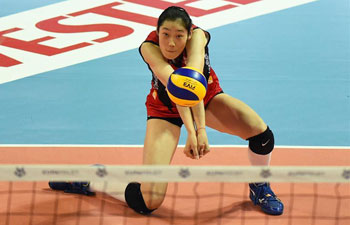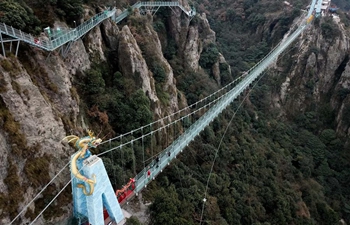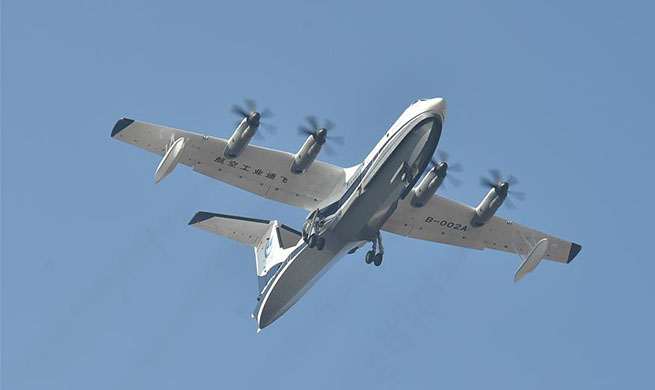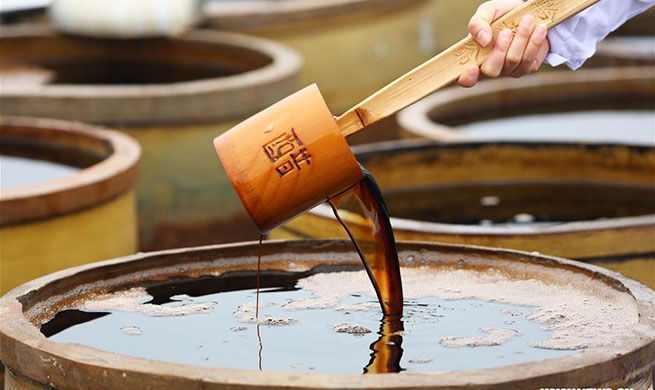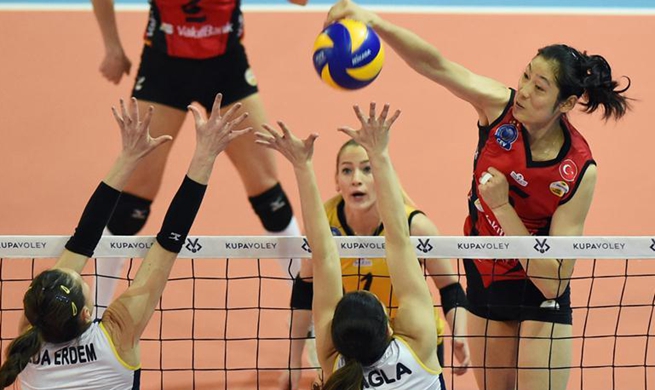By Sportswriter Zheng Daojin
BEIJING, Dec. 24 (Xinhua) -- After failed World Cup qualification campaign, it's time for Chinese football to change with a training revolution that is both technical and tactical in scope. This is known as the T-T revolution.
Although the arrival of Marcello Lippi has obviously changed the Chinese men's national team, who picked up only one point from their first four matches at the third round of the 2018 FIFA World Cup Russia Asian qualifiers, the 11 points they collected from six matches under the Italian's reign could not change their fate of elimination.
China finally ranked the fifth place of Group A with 12 points, 10 behind leaders Iran and one point away from the third-placed team Syria, who earned a playoff chance but lost to Australia. China have received early exits from their last three world cup qualifiers since they first reached the finals in 2002. This time, they went a little farther and kept hopes of advancing alive until the last group game against Qatar.
One positive development is that Lippi has changed the team's defensive playing style adopted by his predecessor Gao Hongbo, who preferred a five-defender system, with an attack-minded 433 formation. The new tactics inspired the side's attacking power, courage and self-confidence when they faced Asian teams, and earned impressive wins over South Korea, Uzbekistan and Qatar.
The main drawback is that the Chinese team can only perform half of the time during a match. Most of the Chinese internationals are above 28 which means their physiques, technical skills, football awareness and understanding of tactics have reached their limits. Lippi called up youngsters like midfielder He Chao, forwards Wei Shihao and Yang Liyu to the national team after the World Cup, and they showed potential in the East Asian Cup, but are still a class away from their senior teammates.
Poor quality of youth training remains another deep rooted problem of Chinese football. Lack of well qualified coaches and outdated training methods are issues standing in the way to the sport's bright future in China.
Although Chinese super league clubs have invited several famous international coaches like Luiz Felipe Scolari, Manuel Pellegrini and Felix Magath, they have done little to lift the level of the youth teams.
Despite big names like Hulk, Oscar, Ezequiel Lavezzi, Alexandre Pato, Axel Witsel and Graziano Pelle, the clubs are still at a low competition level. Andre Boas's Shanghai SIPG lost to
So there's an urgent need for Chinese football to raise a new wave of T-T revolution to change this situation, especially in youth training. And the first thing is to reach a common consensus within the sport's governing body and the clubs, that the revolution is a must in order to catch up with the trend of world football. Two major football styles are now prevailing. One is Germany play in a similar style. Tiki-taka requires overwhelming possession, quick passing, quick thinking, and constant position changing, which also helps Barcelona and Paris Saint Germain enjoy victories at the club level. Pep Guardiola is the brand coach of this philosophy. The other one is a more efficient and pragmatic style used by national teams like Portugal, who were crowned at Euro 2016, and Italy under former boss Antonio Conte. Conte brought this efficient football style to Premier League outfit Chelsea, while Diego Simeone and Jose Mourinho adopted close philosophy in Athletico Madrid and Manchester United respectively. In theory, the first style is more suitable for Chinese footballers, as their neighbors Japan have proved they can master this kind of passing game with relatively disadvantageous physical strength compared with European and South American players. Maybe Dragan Stojkovic is a good candidate to guide the T-T revolution for Chinese football training. The football romanticist coach and former Yugoslavian football genius has proved his philosophy effective by leading Guangzhou R&F to the fifth place with short passes, buildup from the back, possession-oriented play, penetrating passes and interchanges. Although his squad cannot be compared with big clubs like Guangzhou Evergrande and Shanghai SIPG, Stojkovic used an avant garde 343 attacking formation, and his strong belief in beautiful football helps forge a strong side based on native players who can produce some nice buildups. In fact, Guangzhou R&F beat giants like Scolari's Evergrande with this kind of football. In an interview, Stojkovic said that he has the same understanding of the sport with Arsene Wenger, who was his coach in J-league side Nagoya Grampus in the 1990s. If Chinese coaches and players can use Stojkovic's football philosophy to guide their T-T revolution, and most of the youth training adopts the same or similar methods, Chinese football is likely to enjoy a bright future. On the contrary, if there's no revolutionary changes in the youth training, both technically and tactically, Chinese football will be stuck in its current trap that keeps it on the level of "physical football. To succeed, China must gradually lift itself to the level of technical football, then to "tactical football" and finally to the level of "smart football." This kind of play is epitomized by quick pre-thinking, beautiful short passes, creative dribbles, excellent awareness and complicated positioning to create chances.?




